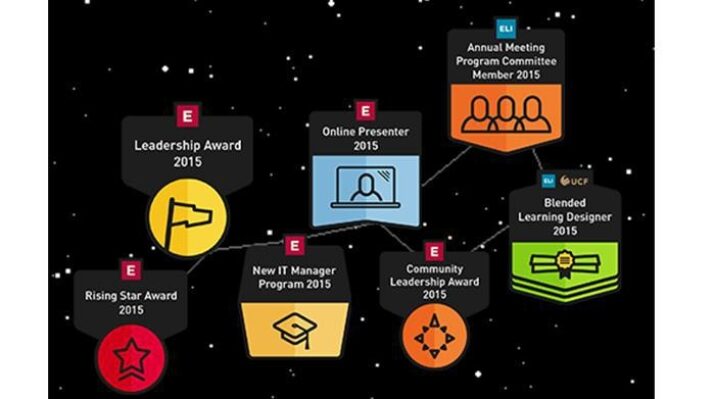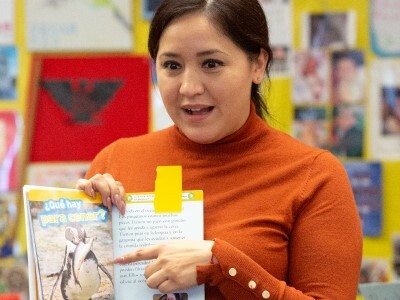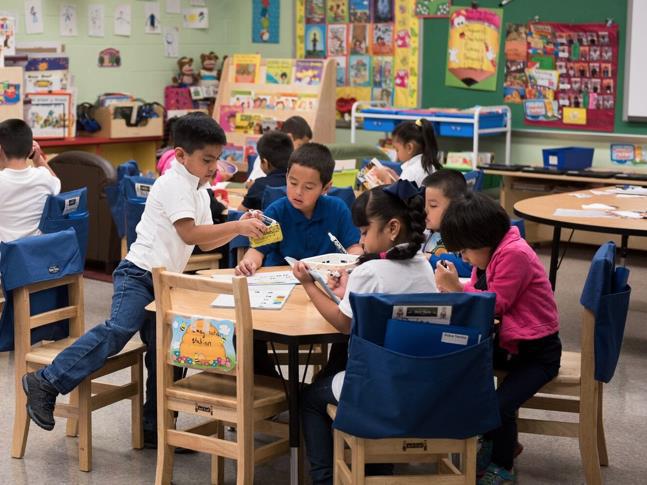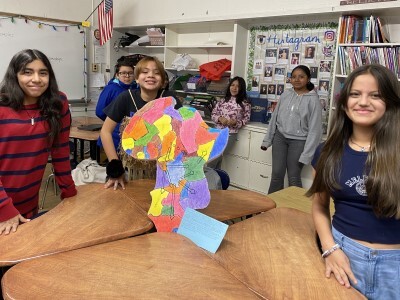What’s This New Buzz About? Microcredentials in Education
Topics

Educators are the lead learners in schools. If they are to enable powerful, authentic, deep learning among their students, they need to live that kind of learning and professional culture themselves. When everyone is part of that experiential through-line, that’s when next generation learning thrives.
What are microcredentials in a K-12 context, and how they can be used in the education system?
I am a teacher in Utah and a fellow in a new cohort of teachers called Utah Teacher Fellows, a partnership of Hope Street Group and the National Network of State Teachers of the Year. I have 21 years of classroom experience, though not all have been consecutive. I returned to the classroom seven years ago after being out for 14 years. In these last seven years, I have felt that I have been worked over by changes in our system. Our district was apparently on the front end of some major reforms. As a ‘new again’ teacher, I was overwhelmed my first years back, hustling to keep up with all of the demands of teaching. This period has been filled with long hours and many frustrations as I wasn’t always sure who to turn to for help and how to sort through all of the minutiae to prioritize what I needed to do.
I recently had an opportunity to preview some information from the Utah State Board of Education in an email from my director at the fellowship. In this message, I ran across a new buzzword: microcredentials. I am not a fan of new buzzwords, because they’ve historically led to major but short-lived changes in districts and schools. I hoped I could forget about them to prevent future angst, but something about my lack of understanding microcredentials kept gnawing at me.
A couple of weeks later, I learned from a visiting friend that her new job entails training engineers and geoscientists to navigate through a new system at a petroleum company based on their competencies. “Have you ever heard of micro-credentials?” she asked. She went on to describe the value in this competency-based system, saying the trainees understand what is expected of them and how to acquire the skills to be more successful at what they do. They can see their career path more clearly, and they can have more personal control over it.
I think most teachers would be excited by having a clear system for acquiring and defining key skills, and to then be recognized with positive labels such as ‘expert’ or ‘mentor’ in our strongest areas.
This cross-industry adoption of microcredentialing intrigued me, and so I did more research and found that many major corporations are using this type of system to increase productivity, match skills to jobs, and track employees’ career training and competence in specific areas of their field. Comfort came from knowing that there are some models already in place for this type of change. Although I am certain there is much work to be done to implement microcredentialing in K-12 teacher certification, it appears that some groundwork has already been laid.
Microcredentials are in essence ‘mini degrees.’ Mentees can earn certificates or digital badges when they complete an area of coursework. Courses for educators are offered on a variety of topics, from ‘How to be a better reading teacher’ to ‘Understanding how to teach children with ADHD or autism,’ all with a focus on detailing education best practices, or skills and methods that have been proven effective through independent research.
Through online credentialing institutions such as Digital Promise, teachers can peruse and choose courses that will develop their competencies and influence their practice. These self-paced courses are usually less intensive than college classes, though some may qualify for college credits. Submissions for earning micro-credentials must show evidence or demonstrate the teacher’s development of competency through activities, assessments, or projects that are ultimately reviewed by other educators.
Teaching is such a unique field of study. Teachers often discuss the inability even amongst ourselves to define our skillsets. We can manage, instruct, and inspire students despite the challenges we face every day in our classrooms. We must meet goals and expectations that are often predetermined before our students even arrive. These goals are not always fully supported, and we are left to create, implement and measure our curriculum and teaching strategies.
We are hard-pressed on every side with expectations from our state, local administration, colleagues, parents, and students. We rarely feel that we excel at any one thing.
That said, I think most teachers would be excited by having a clear system for acquiring and defining key skills, and to then be recognized with positive labels such as ‘expert’ or ‘mentor’ in our strongest areas.
In recent statewide peer research led by the Utah Teacher Fellows, we learned that many new teachers—much like those engineers and geoscientists—would like to be able to envision their career paths mapped out to better navigate the teaching profession. I think Utah’s broad recognition of microcredentials would provide the needed structure for teachers to advance and move up in the system, to not only clarify specific titles for individuals but to also justify monetary compensation for added responsibilities.
Through our teacher surveys and focus groups last fall, the Utah Teacher Fellows also observed variance in educators’ views on professional development. Some teachers (mostly in larger urban areas) get an abundance of professional development, whereas teachers in more rural districts seem to be yearning for more. I can see how bringing micro-credentialing to our state might help level the playing field, reducing this discrepancy through the use of common digital tools, without the geographical constraints of in-person professional development.
We all know that technology has been a game changer for the way we do things in business, education, and life in general. Many business models and systems are antiquated and it is time for some upgrades. I hope public education will follow the lead of the business sector with microcredentials. It is time to create a new system for teachers to feel valued for what they know and the skills they have acquired.
While I’m typically hesitant to jump onboard to ride every trend in education, I do believe microcredentialing could be one way to set the landscape for future learning in our nation. Microcredentials are becoming the wave of the future. Not only teachers will benefit; the effect also will spill over into how we assess students in a broader range of topics. I am excited to be a part of this new wave and will be taking part in the process myself next year as Hope Street Group will require that we earn two badges ourselves. I look forward with enthusiasm to being stretched once again. Isn’t that what education is all about?




